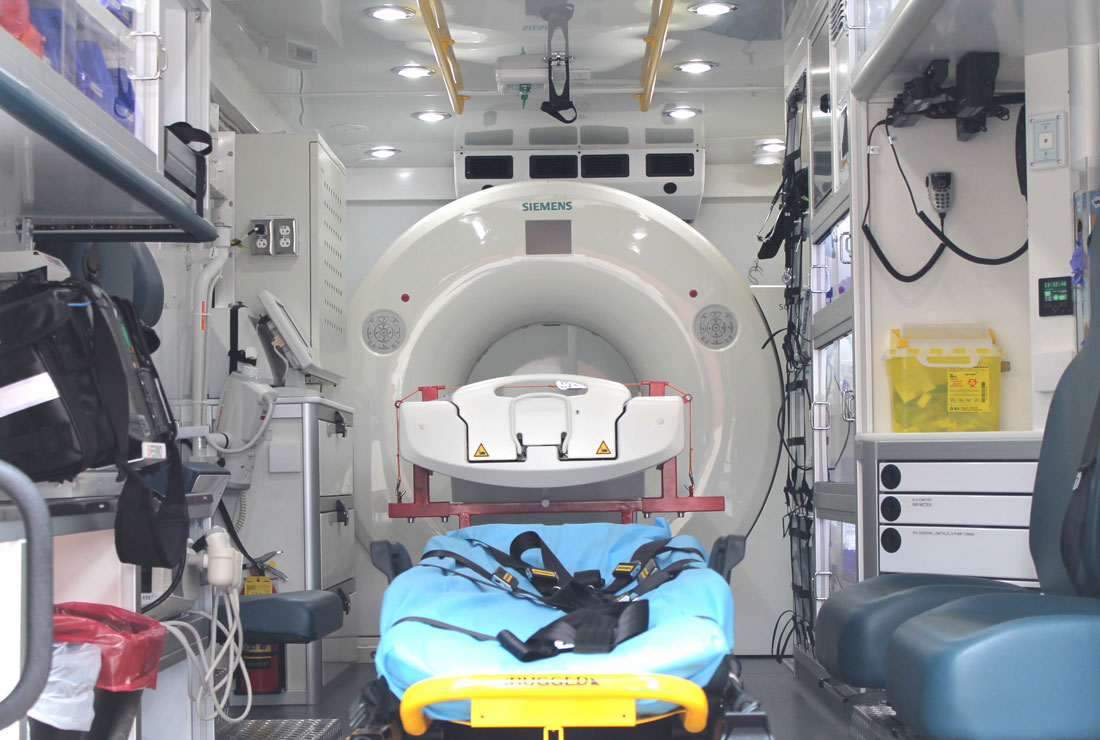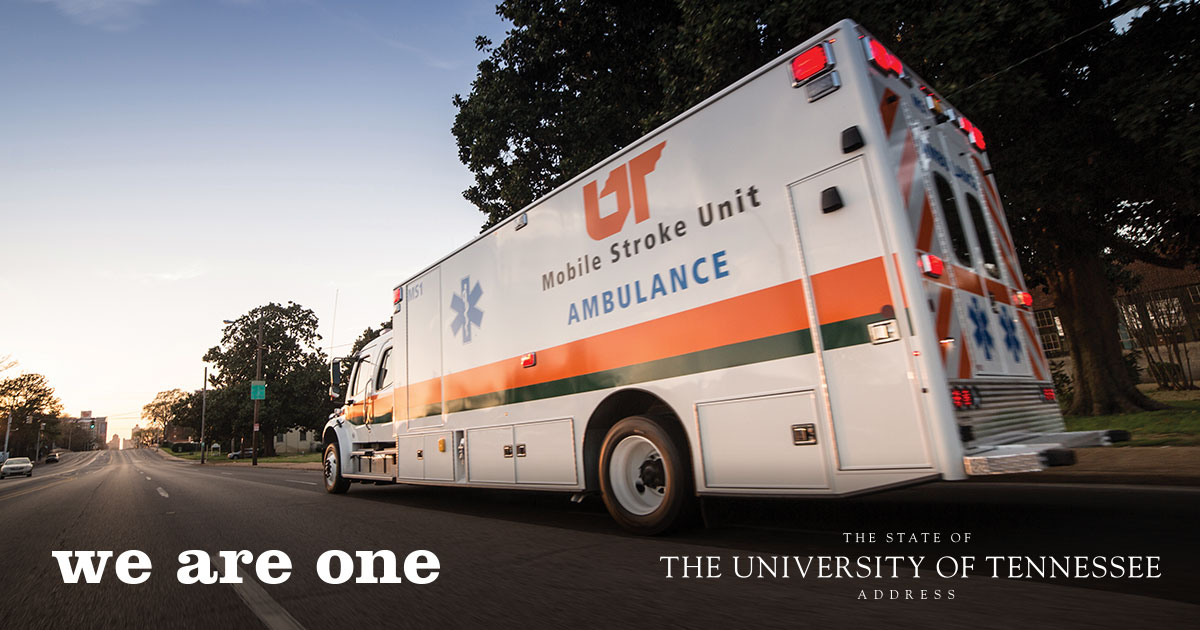‘Time is Brain’
With a stroke rate in Shelby County, Tennessee, 37 percent higher than the national average, the University of Tennessee College of Medicine launched a Mobile Stroke Unit to help.
“If we eliminate the treatment delay getting to and through the emergency room, we can save up to 90 minutes, and as a neurologist, I know that time is brain, so the more time we save, the less likely it is that permanent brain damage will occur in a patient,” said Dr. Andrei Alexandrov, department of neurology chair and Semmes-Murphey Professor. “Our ‘time to treatment’ target is less than one hour.”

On the stroke unit, specially trained responders conduct CT scans on the patient’s brain and blood vessels in the brain looking for evidence of a stroke. They can also begin treatment of with that critical first-hour timeframe.
The sophistication of the UT College of Medicine Mobile Stroke Unit means a patient will be prepped to go straight to a hospital’s catheterization laboratory, neuro intensive care unit or l stroke unit, bypassing a stop in the emergency department entirely.
While based in the heart of a 10-mile, most critical needs area of Memphis with the highest incidence of stoke, the unit can also be deployed throughout the entire metro region.
Between July 2016 and January 2017, the unit responded to 223 emergency stroke calls, transported 112 patients to a hospital with 30 of patients received a clot-dissolving drug treatment in route.

